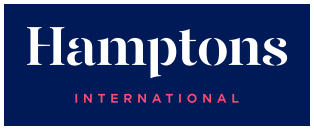Trends driving the rental market into 2023/4
Category Rentals
The residential rental market tends to move through cycles in line with the economy, but is also impacted by various other factors. For example, the development of new businesses and industries tend to drive demand for rental accommodation close to such an area, as does an influx into urban areas.
Additionally, various other factors such as technology or security might also affect trends in the rental market. Seeff looks at some of the current trends which influence rentals into 2023/4.
Higher interest rate boosted demand for rental accommodation
Higher interest rates have a direct impact on the demand for rental property. The higher interest rate and higher borrowing costs means fewer people, especially at the first-time buyer level, are able to purchase property. Some property owners may also now consider renting rather than buying. The broader impact of this, is that demand for residential property is increasing compared to the 2020-2022 period.
Rental rates coming under pressure again
Seeff’s agents are reporting that while the rental market remains active and stable, and landlords have seen some positive rental growth over the last year, rental rates are again coming under pressure. This is area and price band dependent. In areas where there are high rental stock levels, there tends to be more pressure on prices compared to areas which are seeing high demand combined with low stock levels.
A shortage of affordable rental stock opens up opportunities
Pressure on household budgets and an influx into the urban areas continue seeing high demand for more affordable rentals. There is a real gap in the market in the affordable sector and opportunity for development. This trend is particularly evident in major cities such as Johannesburg, Cape Town, and Durban, where rental prices have historically been high for young entry-level tenants. Revamping unused buildings in CBD areas could fill some of this gap according to some commentators.
Shared accommodation helps ease affordability pressures
Shared accommodation has gained popularity among young professionals, students, and even older individuals seeking cost-effective living arrangements. Co-living spaces, shared apartments, and communal housing options are becoming more prevalent in urban areas. This trend not only offers tenants the opportunity to reduce living expenses but also fosters a sense of community and social interaction.
Technology and rental management
Technology continues to transform various industries, and the property rental sector is no exception. Over the last few years, the use of technology to manage rental properties has become more prevalent. Property listing platforms, virtual property tours, and online rental applications are becoming the norm. Rental agents who use these platforms are able to provide a better service to property owners and landlords not only to source, but also to manage and administer rental properties.
Flexible lease terms sought by high calibre tenants
Good calibre tenants are increasingly looking for flexibility in their lease terms, especially around escalation of rental rates and important additions to the property including security, Wi-Fi and energy reduction. These features may include solar panels, LED lighting, water-saving fixtures, and improved insulation. Given the electricity challenges, some help in that regard is becoming critical for landlords.
Enhanced security is now a must for residential rentals
Security is a top concern for tenants in South Africa, and landlords must look to secure their properties. Rental properties with robust security measures such as gated communities, access control systems, CCTV cameras, and 24/7 security personnel are highly sought after. Properties that prioritise safety and offer peace of mind to tenants are likely to enjoy lower vacancy rates and attract quality tenants.
Some shifts in the rental market are inevitable and reflect the economic and energy challenges, and the impact of the interest rate hikes on affordability. Landlords who adapt to these evolving trends by offering affordable rentals, embracing technology, and incorporating sustainable and secure features are well-positioned to attract tenants and maximise their rental income. Similarly, tenants who stay informed about the prevailing trends can make informed choices and find rental properties that align with their preferences and budgets.
Author: Gina Meintjes




 Beyond your expectation
Beyond your expectation